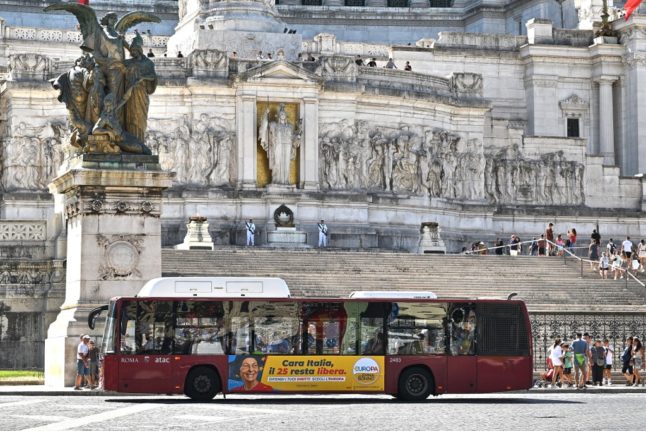Italy’s transport ministry on Tuesday night ordered a general strike set to affect transport, schools and healthcare on Friday must be cut to four hours, instead of the 24 initially planned
READ ALSO: The transport strikes to expect in Italy in autumn 2023
Deputy Premier and Transport Minister Salvini, who has in recent months cut short several strikes expected to impact transport, wrote on social media late on Tuesday that he had blocked the protest to “protect the rights of 20 million workers, citizens and commuters.”
CGIL leader Maurizio Landini Landini said the right to strike was protected by the constitution and “serves to defend the dignity of working people.”
“Those who will strike are those who keep the country running, pay taxes,” he said, while “Salvini has never worked in his life.”
Union leaders had earlier on Tuesday insisted that the protest, which was called several weeks ago against the government’s 2024 budget bill, would go ahead despite Salvini’s opposition and the strike regulator saying it should be postponed as it did not meet the requirements for a general strike.
READ ALSO: Why are there so many transport strikes in Italy?
Unions had already scaled back the strike following the regulatory body’s decision, saying it would no longer involve air transport and a strike by firefighters would be limited to four hours.
The protest will now last from 9am to 1pm on Friday, however national rail operator Trenitalia warned that train services (local and interregional) may also be affected outside of those hours.
The strike may also impact local public transport (buses, trams and metro trains), taxis, ferry services, freight services and motorways, though a minimum level of ‘essential’ service is guaranteed by law in all cases.
The timing and extent of any disruption to transport services will vary by city and region, and will depend on how many staff decide to strike on the day.
There will be no strikes affecting public transport in Milan, Naples and Bologna, as these cities have all recently held similar strikes at a local level, meaning another strike was not authorised.
Closures had been planned on Friday at schools and post offices in some areas, and whether or not these now go ahead is likely to be decided at a local level.
The strike was also expected to impact the healthcare sector, with members of nursing union Nursind planning to take part.
As in the case of strikes previously blocked by Salvini, some services have already been cancelled ahead of the long-planned protest meaning there may still be some disruption beyond the 9am-1pm strike time.
While strikes in Italy are a frequent occurrence, they are not always disruptive and Italian law protects a minimum number of transport links and other services deemed essential during strikes.
Unions in Italy called a total of 1419 strikes in 2023, many of which were on a local or regional level, according to newspaper Il Sole 24 Ore. This was 99 fewer than in 2022.
Keep up with the latest updates in The Local’s strike news section.



 Please whitelist us to continue reading.
Please whitelist us to continue reading.
Member comments